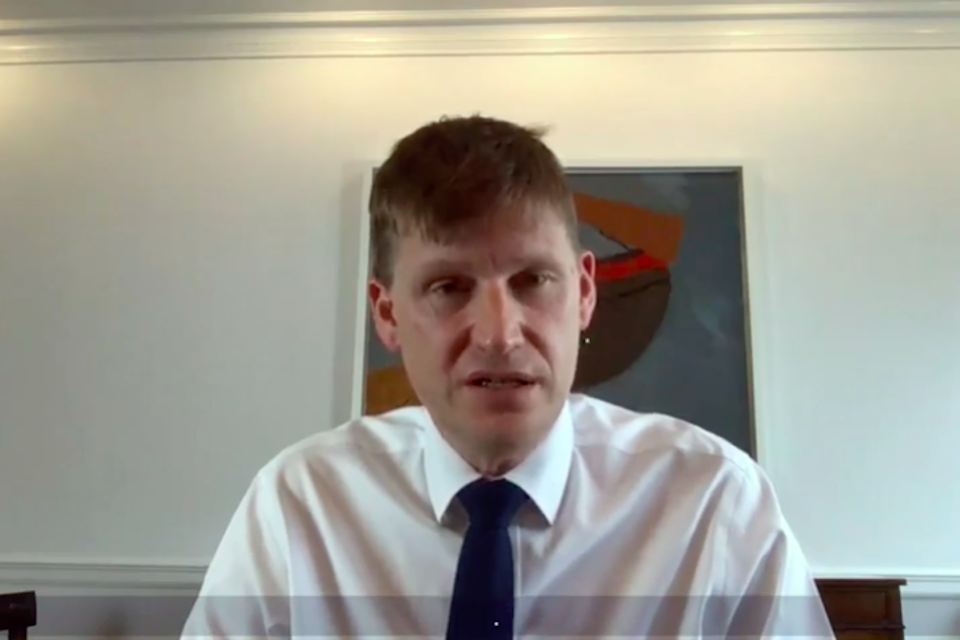Addressing coronavirus (COVID-19) in Syria
Statement by Ambassador Jonathan Allen, UK Chargé d’Affaires to the UN, at the Security Council briefing on Syria

Thank you very much, Mr President. Thank you, also, Mark, for your briefing today.
Mr President, the United Kingdom remains deeply concerned about the potentially catastrophic impact of COVID-19 in Syria. We’ve heard today there are 43 confirmed cases and likely already many more - unknown because of the lack of testing capacity. The 6.2 million internally displaced Syrians face a particularly severe risk. Almost 940,000 of those are living in appalling conditions in the northwest.
The United Kingdom is committed to playing its part to tackle the spread and impact of coronavirus in Syria and other vulnerable countries across the globe. So far we have pledged over $900 million to the international response to help end the pandemic. $350 million of this funding is helping to reduce mass infections in vulnerable countries. Our money would install new hand washing stations, isolation and treatment centres in refugee camps and increase access to clean water for those living in areas of armed conflict. As the third largest bilateral humanitarian donor to the Syrian response, with over $4 billion spent since the conflict began, we are urgently working to ensure our significant humanitarian programme across Syria, including, of course, in those areas under regime control, can most effectively address the direct and indirect consequences of the pandemic. And we welcome the recent increase in cross-border aid into northwest Syria and the maintenance of the ceasefire agreed between Russia and Turkey on the 5th of March. This is helping humanitarian agencies to meet huge needs in Idlib and to focus on the threat of COVID-19. The evidence is clear that the UN cross-border mandate must continue past July.
Colleagues, coronavirus knows no borders. It knows no front lines. It is a threat to all in Syria and beyond. Preventing it is a matter of humanity, not of politics. We must ensure that no part of Syria is neglected in the effort to prevent and prepare for the potential spread of the virus.
And that’s why we’re so concerned about the northeast of Syria. Both OCHA and the World Health Organisation have highlighted a dangerous void. The World Health Organisation has confirmed the first death from COVID-19 in that area. And we know from what we’ve learned everywhere else in the world that community transmission is surely ongoing. Yet there are apparently only 35 ICU beds in the whole of the region.
As OCHA told us in this Council on the 24th of April, humanitarian assistance delivered by land or air has only reached 31% of the health facilities previously supplied cross-border via Yaroubiya. That means 69% of health facilities are not receiving the supplies that they need. Moreover, the urgency to address the pandemic is not reflected in the pace of approvals for cross-line assistance. As noted in the SG’s report, the authorities in Damascus continue to take three to four months to respond to medical delivery requests to the northeast.
Colleagues, with a need so pressing, we must work together. We must put aside previous political differences. We must enable the United Nations to use all modalities for the specific purpose of preventing a health disaster for as long as coronavirus poses such a threat.
The United Kingdom is proud to stand with many others around this Council table as part of a decisive and coordinated action to tackle the spread and impact of coronavirus in vulnerable countries across the globe. We must work together to do the same for Syria. We must give the United Nations and its humanitarian partners the best chance of being able to respond to the outbreak in all areas via all necessary modalities. Tackling this global pandemic invokes our common humanity. We should all think carefully about the actions and decisions that we can take.
Thank you, Mr President.